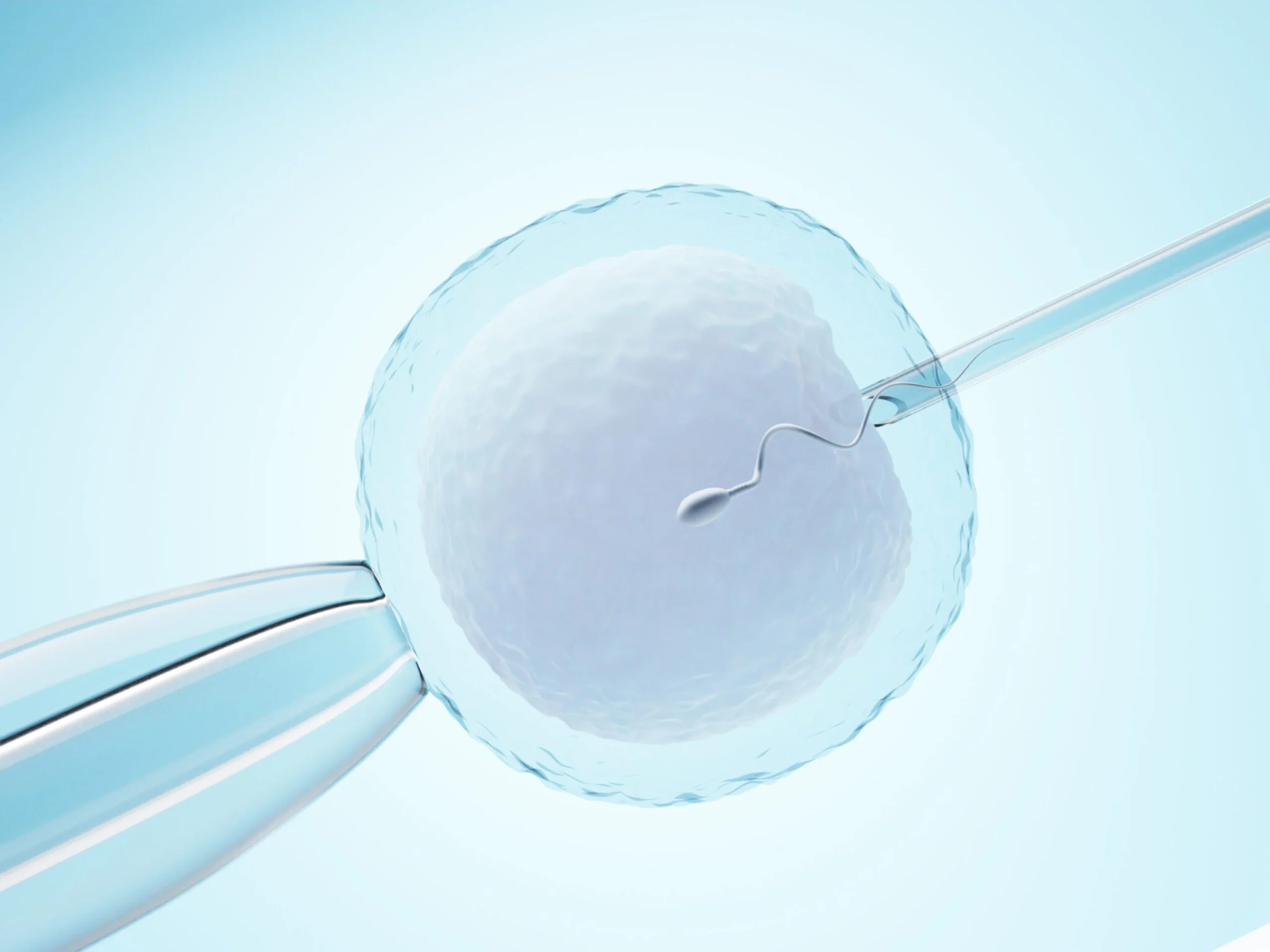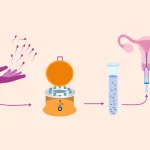If you’ve been exploring fertility treatments, you’re likely to have come across the term “mature eggs” more than once. In IVF, mature eggs are the ones doctors are hoping to collect during egg retrieval, because they have the highest chance of fertilizing and developing into healthy embryos. But what exactly makes an egg “mature,” and why is this stage so important in the IVF process?
This article will explain the difference between mature and immature eggs, how fertility specialists evaluate them, and why maturity plays a key role in your IVF success.
What Are Mature Eggs in IVF?

In simple terms, a mature egg is an egg that has completed its natural growth cycle and is ready for fertilization. Every month, women naturally produce a group of eggs inside the ovaries, but only one or a few usually reach full maturity. IVF aims to help more eggs mature at the same time so they can be retrieved and fertilized in the lab.
Mature eggs are identified during the egg retrieval stage of IVF. Embryologists look at each egg under a microscope to check whether it has reached the right developmental stage, known as the metaphase II (MII) stage. These are the eggs that can successfully combine with sperm to form embryos.
Mature vs. Immature Eggs: The Key Differences
Not all eggs collected during IVF are usable. Some may be immature, meaning they haven’t completed the growth process.
● Mature eggs (MII stage): Fully developed and capable of fertilization. These are ideal for IVF.
● Immature eggs (germinal vesicle or metaphase I stage): Still developing and usually cannot fertilize successfully.
● Post-mature or aged eggs: Rarely, some eggs may be considered “overripe,” which can affect their quality and reduce chances of healthy embryo development.
The quality and number of mature eggs retrieved often determine the overall success of an IVF cycle.
How Are Mature Eggs Collected in IVF?
The journey to collecting mature eggs begins with ovarian stimulation. Fertility medications encourage the ovaries to produce multiple eggs instead of just one. This stage usually lasts 8–14 days.
During this time, your doctor monitors your progress with ultrasounds and blood tests. Once the eggs are ready, a trigger shot of hormones (often hCG or a GnRH agonist) is given. This shot is crucial because it completes the final stage of egg maturation.
Egg retrieval is then scheduled about 34–36 hours after the trigger shot. During this short outpatient procedure, doctors use a thin needle guided by ultrasound to collect eggs from the ovaries. The eggs are then immediately examined in the lab to check for maturity.
Why Mature Eggs Matter in IVF Success
The maturity of your eggs directly impacts IVF outcomes for several reasons:
- Fertilization potential: Only mature eggs can properly join with sperm to create embryos.
- Embryo quality: Mature eggs are more likely to develop into strong, viable embryos that survive to the blastocyst stage.
- Genetic health: Immature eggs are more prone to errors during cell division, which can affect embryo development.
- Higher success rates: The more mature eggs retrieved, the more embryos can be created, increasing your chances of pregnancy.
Even if many eggs are collected, success depends largely on how many of them are truly mature.
Signs of Mature Eggs During IVF
You can’t feel or see egg maturity yourself, but doctors and embryologists use specific markers to determine it:
● Microscopic observation: Mature eggs appear with no visible nucleus and show specific cell structures that indicate readiness.
● Response to trigger shot: Proper timing of the trigger shot helps ensure eggs complete their maturation.
● Hormone levels: Bloodwork during stimulation helps doctors predict how well your eggs are maturing.
In most cases, about 70–80% of eggs retrieved during IVF are mature, though this varies depending on your age and health.
What If Too Few Mature Eggs Are Retrieved?
It’s common to worry if your doctor reports fewer mature eggs than expected. Here’s what you should know:
● Egg quality matters more than quantity: A smaller number of high-quality mature eggs can still lead to pregnancy.
● Second cycles can improve results: Doctors may adjust medication dosages in future IVF cycles to encourage more maturation.
● Immature eggs can sometimes be matured in the lab: This process is called in vitro maturation (IVM), though it’s less commonly used, and success rates vary.
Your fertility specialist will review your results and adjust your treatment plan if needed.
Factors That Affect Egg Maturity
Several factors influence how many mature eggs you’ll produce in an IVF cycle:
● Age: Women under 35 usually produce a higher percentage of mature eggs compared to women over 40.
● Ovarian reserve: A higher number of available eggs increases the likelihood of retrieving mature ones.
● Hormone response: Each woman’s body reacts differently to fertility medications.
● Medical conditions: Issues like polycystic ovary syndrome (PCOS) can affect egg development.
● Lifestyle factors: Smoking, poor diet, or chronic stress may lower egg quality and maturity.
Improving Egg Maturity and Quality for IVF
While you can’t control everything, there are steps you can take to support egg health:
● Eat a fertility-friendly diet: Include whole foods, leafy greens, lean proteins, and omega-3 fatty acids.
● Take recommended supplements: Folic acid, vitamin D, and CoQ10 may help improve egg health (check with your doctor first).
● Maintain a healthy lifestyle: Exercise regularly, avoid smoking and excessive alcohol, and manage stress.
● Follow medication protocols carefully: Proper timing of injections is essential for egg maturation.
These habits don’t guarantee results, but can give your eggs the best chance at reaching maturity.
Frequently Asked Questions About Mature Eggs in IVF
How many mature eggs are needed for IVF?
On average, doctors aim for at least 8–15 mature eggs per cycle, but even fewer can sometimes be enough if they are high quality.
Do immature eggs ever fertilize?
Occasionally, immature eggs may fertilize, but they are less likely to develop into healthy embryos.
Does more mature eggs mean higher IVF success?
Yes, generally speaking. The more mature eggs you have, the more embryos can be created, improving your chances of pregnancy.
Can age affect the maturity of eggs?
Absolutely. As women age, both the number and quality of mature eggs tend to decline, which is why IVF success rates decrease over time.
Final Thoughts: Why Mature Eggs Matter in IVF

So, what does mature eggs mean in IVF? In short, mature eggs are the foundation of a successful IVF cycle. They are the ones that can fertilize, develop into embryos, and ultimately lead to pregnancy. While not every egg retrieved will be mature, your doctor’s careful monitoring and treatment plan aim to maximize both quality and quantity.
Even if your first cycle doesn’t produce the results you hoped for, remember that IVF is often a journey requiring more than one attempt. With patience, support, and guidance from skilled specialists, mature eggs can lead to the outcome you’re working so hard for — starting or growing your family. If you’re considering IVF and want expert support in maximizing your chances of retrieving healthy, mature eggs, schedule a consultation with The Bridge Clinic’s IVF specialists today. With advanced technology and personalized care, we’ll guide you every step of the way toward achieving your dream of parenthood.
Follow us on our social media channels below:
Explore our related articles below:








